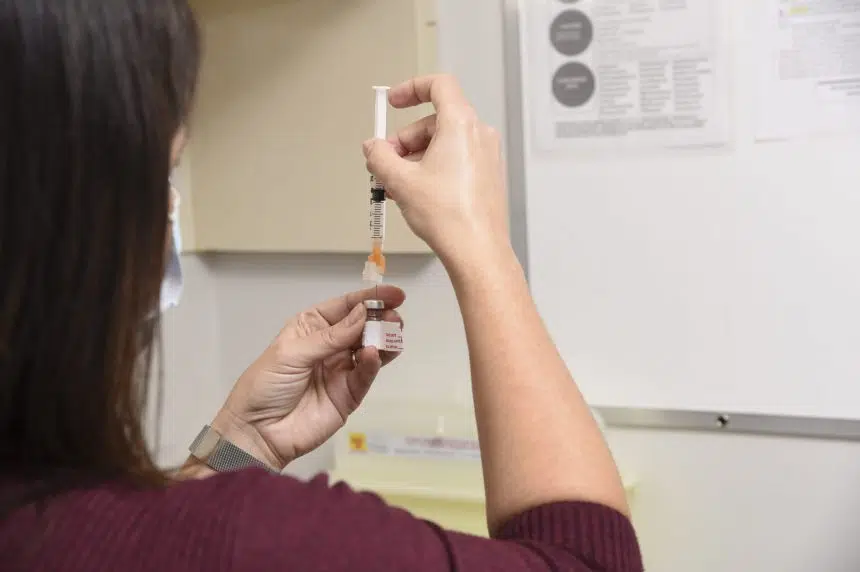Saskatchewan is looking to make it easier for people trained outside of Saskatchewan to get their credentials recognized in the province, with a move the provincial government calls “nation-leading.”
The government is making regulatory changes to require a regulatory body to respond to an application for international credentials within 50 days, and domestic within 20 days, and if the credential was denied, to give detailed instructions to fix what’s wrong.
“Meaning if you have to take a micro-course from Sask. Poly, for example, or you need to take a course from the University of Regina or Saskatchewan, whatever it may be, they need to provide a detailed remediation path,” explained Jeremy Harrison, Saskatchewan’s minister of immigration and career training.
The changes also include creating the Labour Mobility and Fair Registration Practices Office to help newcomers with the process.
The changes apply to the more than 160 regulatory bodies in the province the government has worked with for more than a year on this initiative, but there is a focus on health-care workers given the employee shortages in the sector.
The province is also creating the International Credential Recognition Grant, which offers up to $6,000 per application to help internationally trained workers address any shortfalls identified by the regulatory bodies.
Government officials recently completed two recruitment missions to the Philippines, which saw 400 job offers extended to internationally educated nurses.
“We really do continue to have too many people with internationally obtained credentials that are not recognized. And it happens. And we need to do a better job, and I think nationally as a country we need to do a better job, but in Saskatchewan we are leading the country,” said Harrison, touting the changes.
Harrison said Saskatchewan is now the only jurisdiction to have legislated timelines in places for the adjudication of applications, and the only one to have financial support and remediation be a part of it.
“I think we’ve all heard it, and it does happen: You hear of the physician who’s driving a taxi,” said Harrison.
“There are many other examples where those who have obtained credentials from outside of the country that are highly educated — whether it be in engineering, whether it be in nursing, whether it be in other health-care-related fields — who aren’t actually able to practise that profession here in Canada.”
The minister believes these changes will attract more people to Saskatchewan because, unlike other provinces, it provides a clear path.
“If you’re somebody with internationally obtained health training of some sort, you want to move to Canada — I mean, provinces really are competing for all of these individuals — you’re making a decision where you’re going to relocate to, a lot of considerations go into that. But if you know what the time frame is in which your credential is going to be recognized, that is a very real competitive advantage for Saskatchewan,” said Harrison.
Harrison said the change isn’t about lowering or changing standards, as the applicants will still have to meet the standards set out. He said it’s about procedural certainty and clarity.
The minister also expects that once applications start coming in and the government gets a better idea of where the bottlenecks are, it’ll be able to work with the college system to design programs to bridge those gaps.
The Saskatchewan NDP is glad to see the change, with Finance Critic Trent Wotherspoon saying the NDP has been pushing for it for a long time.
“It’s been a real lost opportunity in Saskatchewan to not act in an aggressive way in this front. And it doesn’t just shortchange the opportunity of the future of the newcomers that have come to Saskatchewan ready to contribute the province but has shortchanged the province as a whole,” said Wotherspoon.
He said the NDP needs to take a closer look at some of the details of the changes but some of the measures seem like positive steps.











